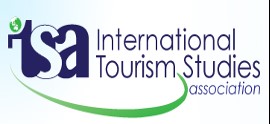Re-Tourism or Transformations of Travelling Experience in the Post-COVID-19 Era
Short Abstract
The COVID-19 pandemic has an irreversible impact on the tourism sector. This is related to the transformation of tourism products and services, the supply of a new tourism services and products, and the development of tourism at the new destinations. Tourism sector will have to introduce new technological and non-technological innovations, new products, and services. In a changed social environment, tourism stakeholders have to adapt new business models. This is inevitable in order to adapt to the new social and economic realities. The paper discusses both the management measures of the COVID-19 pandemic in tourism sector and the transformations of tourism in the post-COVID-19 period. Some examples from Lithuania are presented, where different measures were implemented to manage the crisis and to mitigate its impact on the tourism sector. Most implemented measures also had the goals to promote the tourism sector after the lockdown and pandemic, and to transform the tourism system through the development of innovative and digital tourism services. Socio-economic change, technological change and environmental change the most affects tourism and it’s resilience. The post-COVID-19 tourism is analysed using social, environmental, and technological factors. The re-evaluation of tourism resources and environment related to a new tourism opportunity in the context of sustainable business development, adaptation of innovations, digitalization, climate change, health situation, and social security. The authors provides examples of how future trends of tourism relate to the lessons of the COVID-19 pandemic.
Type of Submission
Paper Presentation
Location
Gran Canaria
Recommended Citation
Liutikas, Darius; Burneika, Donatas; Kriaučiūnas, Edis; Baranauskienė, Viktorija; and Pociute-Sereikiene, Gintare, "Re-Tourism or Transformations of Travelling Experience in the Post-COVID-19 Era" (2023). ITSA 2022 Gran Canaria - 9th Biennial Conference: Corporate Entrepreneurship and Global Tourism Strategies After Covid 19. 63.
https://docs.lib.purdue.edu/itsa/ITSA2022/ITSA2022/63
Participation
Attend the conference at Gran Canaria in person.
Re-Tourism or Transformations of Travelling Experience in the Post-COVID-19 Era
Gran Canaria
The COVID-19 pandemic has an irreversible impact on the tourism sector. This is related to the transformation of tourism products and services, the supply of a new tourism services and products, and the development of tourism at the new destinations. Tourism sector will have to introduce new technological and non-technological innovations, new products, and services. In a changed social environment, tourism stakeholders have to adapt new business models. This is inevitable in order to adapt to the new social and economic realities. The paper discusses both the management measures of the COVID-19 pandemic in tourism sector and the transformations of tourism in the post-COVID-19 period. Some examples from Lithuania are presented, where different measures were implemented to manage the crisis and to mitigate its impact on the tourism sector. Most implemented measures also had the goals to promote the tourism sector after the lockdown and pandemic, and to transform the tourism system through the development of innovative and digital tourism services. Socio-economic change, technological change and environmental change the most affects tourism and it’s resilience. The post-COVID-19 tourism is analysed using social, environmental, and technological factors. The re-evaluation of tourism resources and environment related to a new tourism opportunity in the context of sustainable business development, adaptation of innovations, digitalization, climate change, health situation, and social security. The authors provides examples of how future trends of tourism relate to the lessons of the COVID-19 pandemic.
https://docs.lib.purdue.edu/itsa/ITSA2022/ITSA2022/63



Comments
Presenter who would like to attend the Conference in person is Dr. Darius Liutikas.